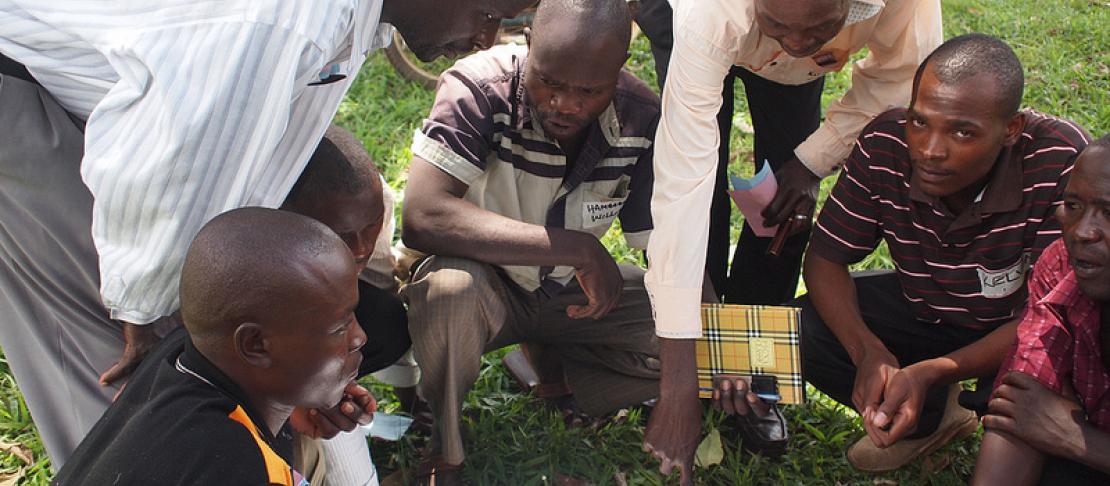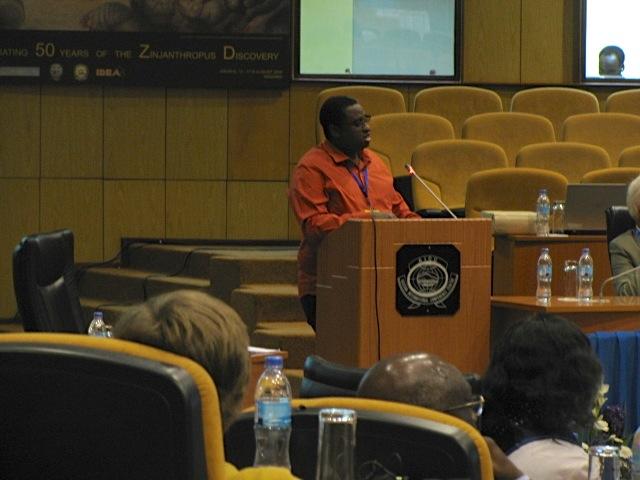Defining a climate research agenda for development in Africa

What can bring together over 300 African climate researchers in one room? One could imagine a high-level invitation to lend their expertise on the African climate system to resolve a cataclysmic event predicted for the continent.
But in reality, what gathered them all was the Africa Climate Conference 2013 (ACC2013), the first of its kind ever held on the continent, to coordinate priorities for African climate research so that it may serve urgent information needs of policy planners and vulnerable. The objective of this meeting: craft together an African agenda for future climate research that will inform adaptation decisions now and to the mid- to end 21st century.
Linking climate science with action
Linking climate science with action is indeed an urgent priority in Africa, the continent projected by the IPCC to be one of the most impacted by the consequences of changing climate. Arame Tall of the International Crops Research Institute for the Semi-Arid Tropics (ICRISAT) and the CGIAR Research Program on Climate Change, Agriculture and Food Security (CCAFS) Research Theme on Climate Risk Management, and co-chair of the international steering committee for the ACC-2013 and WCRP Africa Panel, gave an overview of the urgency of the conference agenda:
With the melodious voices of the King’s choir chanting the conference theme “Advancing Climate Science Research & Knowledge to Inform Adaptation Decision-Making in Africa,” the Africa Climate Conference 2013 opened in Arusha, Tanzania, on October 15, organized by the World Climate Research Program (WCRP), the African Climate Policy Center (ACPC), and the University of Dar es Salaam.
The conference brought together over 300 climate researchers, spanning both biophysical and social sciences, the ‘cream of the cream’ in terms of African climate science and applied research, to bridge the large gap that still exists between research and applications for climate adaptation.
The vice president of the Republic of Tanzania himself opened the conference, testifying of the host country’s dedication to climate services operationalized to support decision-making on the continent. Arame Tall of CCAFS also delivered opening remarks, and James Kinyangi, CCAFS Regional Program Leader for East Africa, delivered a talk to the plenary on research outputs needed to inform agricultural decision-making.

ccafs East africa regional program leader james kinyangi discusses research outputs for agricultural decision-making at the Africa climate science conference.
Agenda for action
The conference produced a clear agenda of climate research for development in Africa, identifying a set of priority areas to advance frontiers of African climate research—the African agenda on climate research for end users—with concrete research idea proposals and identification of African institutions and individuals able to nurture priority areas.
This agenda is set to be endorsed by Clim-Dev Africa, the World Climate Research Programme, the World Meteorological Organization, the Global Framework for Climate Services and all major climate research programs in Africa. Following the conference, an institutional mechanism will be implemented to sustain the agenda for climate research that emerged, and coordinate implementation of pan-African climate research programs across African research institutions.
CCAFS has an important role to play at the table where African stakeholders define the African agenda for research:
1) With its clear focus on climate change impacts for agriculture, CCAFS brings in the unparalleled research capability of CGIAR to bear on research priorities for the continent
2) From its work on climate services, CCAFS leads the way in global thinking in terms of key good practices to learn from on how to develop, tailor, package and evaluate climate services relevant to support farmer decision-making and risk management
3) Finally, CCAFS as one of the main research institutions at the interface of climate and agriculture/food security working in Africa can serve as an important boundary institution between climate researchers and farmer constituencies in Africa, linking farmer needs for operational climate information and available climate research.
Read more about CCAFS work on climate services for farmers.
Read more about CCAFS research with the International Food Policy Research Institute on the future of East African climate and agriculture.
This was written by Arame Tall, Climate Information researcher and James Kinyangi, Regional Program Leader, East Africa.
